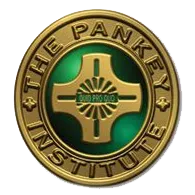Could your jaw pain be a symptom of temporomandibular joint disorder (TMD)? Your Washington, DC, dentist, Dr. Ralph Mazzuca can diagnose the source of your pain and offer helpful treatments.
TMD symptoms
TMD is a painful condition that can affect the muscles, bones, ligaments, or tendons in your jaw joints. The joints, located on either side of your face just below your ears, allow you to open and close your mouth.
Although it isn't always possible to determine the cause of TMD, you may be more likely to experience the condition if you grind your teeth while you sleep, injured your jaw, have a bite problem or misaligned jaw, have arthritis, or clench your jaw due to stress.
Common TMD symptoms include:
- Pain or tenderness in your jaw
- A stiff jaw
- Clicking or popping sounds when you open or close your mouth
- Headaches
- Stiff shoulder or neck muscles
- Difficulty moving your jaw or opening your mouth fully
- Temporary jaw locking
- Facial swelling
- Dizziness
- Ear pain
- Ringing in the ears
How your dentist treats TMD
Your dentist may recommend one or more of these treatments or strategies during your visit to the Washington, DC, dental office:
- Orthodontic Treatment: If a bite problem is responsible for your jaw pain, realigning your teeth with braces or clear aligner trays will correct your problem.
- Nightguard: A nightguard reduces pressure on your teeth and jaw caused by grinding. The guards also prevent abnormal wear on teeth due to grinding or clenching.
- Medication: Corticosteroids may be prescribed if your pain isn't relieved by over-the-counter medications. Prescription muscle relaxants may be helpful in easing tension in jaw muscles.
- Stress Relief Activities: Hobbies, exercise, and stress-relief techniques may ease your pain if your TMD symptoms are due to stress.
- BOTOX Injections: BOTOX injections relieve jaw tension and may reduce the intensity of grinding.
- Occlusal Splint: A simple oral device worn over your teeth at night may also reduce the painful effects of TMD. The splint keeps your jaw properly aligned, which decreases stress on your jaw joints. An occlusal splint may also reduce grinding.
Do you suffer from TMD? Call your dentist in Washington, DC, Dr. Mazzuca, at (202) 537-1088 to schedule your appointment.

